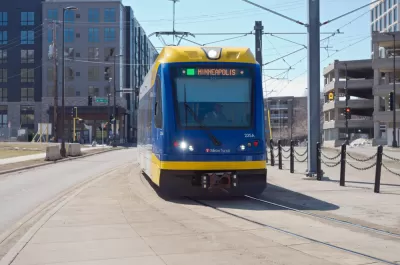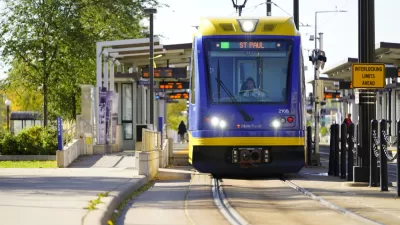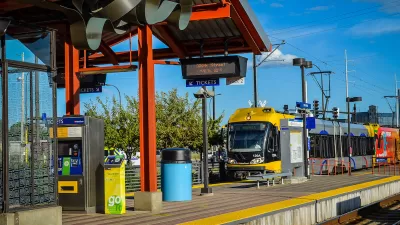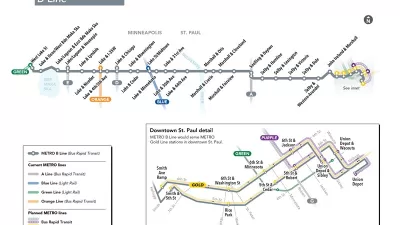With peak hour commuter travel not expected to rebound to pre-pandemic levels, Metro Transit is getting creative in its efforts to attract new riders.

With commute patterns shifting drastically due to the rise in remote work over the last year and a half, public transit agencies across the country must reorganize their services to serve new needs. In the Twin Cities, the need to shift away from focusing on peak-hour service has provided Metro Transit with an opportunity to adjust their services to attract new riders. Bill Lindeke reports on the three new programs that the agency hopes will revive their ridership and encourage more people to use transit for different purposes.
During September and October, Metro Transit has lowered fares to $1 for everyone. The agency hopes this temporary program will "make an impression, to keep these riders going forward" and showcase the effectiveness and safety of the transit system. Metro is also, "for the first time, granting transit passes to specific apartment buildings," granting passes to 20 new multi-family buildings with the goal of reducing the need for private cars. This comes as the Twin Cities have both eliminated minimum parking requirements.
Lastly, Metro buses are now busing St. Paul public school students from four local high schools. "The new busing program is a short-term, emergency stop-gap triggered by a shortage of bus drivers at the district. Forced into triage mode, it marks a big change for thousands of city students." According to Jackie Turner, Chief Operations Officer for the school district, "a side benefit is that the students will get passes that work every day and on weekends (though they are time-limited to respect curfew ordinances). A new generation of students will be used to the liberty that a transit pass provides."
FULL STORY: Without commuters, Metro Transit gets creative about getting riders on board

Alabama: Trump Terminates Settlements for Black Communities Harmed By Raw Sewage
Trump deemed the landmark civil rights agreement “illegal DEI and environmental justice policy.”

Study: Maui’s Plan to Convert Vacation Rentals to Long-Term Housing Could Cause Nearly $1 Billion Economic Loss
The plan would reduce visitor accommodation by 25% resulting in 1,900 jobs lost.

Planetizen Federal Action Tracker
A weekly monitor of how Trump’s orders and actions are impacting planners and planning in America.

Wind Energy on the Rise Despite Federal Policy Reversal
The Trump administration is revoking federal support for renewable energy, but demand for new projects continues unabated.

Passengers Flock to Caltrain After Electrification
The new electric trains are running faster and more reliably, leading to strong ridership growth on the Bay Area rail system.

Texas Churches Rally Behind ‘Yes in God’s Back Yard’ Legislation
Religious leaders want the state to reduce zoning regulations to streamline leasing church-owned land to housing developers.
Urban Design for Planners 1: Software Tools
This six-course series explores essential urban design concepts using open source software and equips planners with the tools they need to participate fully in the urban design process.
Planning for Universal Design
Learn the tools for implementing Universal Design in planning regulations.
Caltrans
Smith Gee Studio
Institute for Housing and Urban Development Studies (IHS)
City of Grandview
Harvard GSD Executive Education
Toledo-Lucas County Plan Commissions
Salt Lake City
NYU Wagner Graduate School of Public Service





























